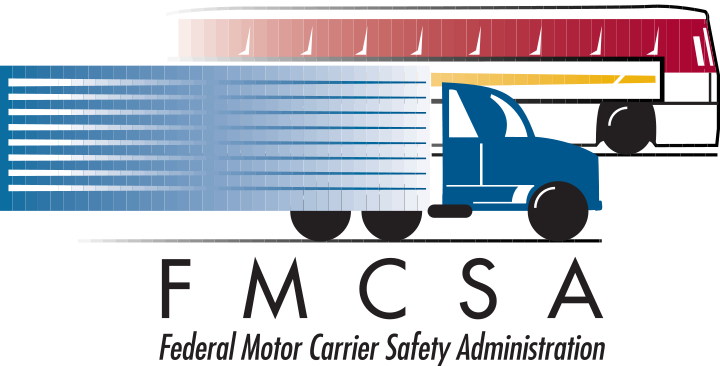Collision Avoidance: How Automated Vehicles Will Interact with the Law and the Judiciary
These sessions are presented free of charge.
0
Days & Times
to
Session One: Oct. 15 | 9:25 – 10:15 a.m. Pacific
Session Two: Oct. 15 | 11:15 – 12:05 p.m. Pacific
Session Three: Oct. 16 | 9:15 -10:05 a.m. Pacific
Session Four: Oct. 16 | 11:15 a.m. – 12:05 p.m. Pacific
Course Location
Course Fees
These sessions are presented free of charge.
$0
Judges will be hearing more cases involving autonomous vehicles as a result of the widespread adoption of this technology. Autonomous CMVs are already on the road. Widespread adoption of this technology may not be far away especially with a shortage of eligible CDL drivers.
Criminal and civil cases involving these vehicles and the data they collect are certain to follow. With limited case law and understanding of this technology, how will judges be equipped and informed to handle these cases when they appear in their courtroom?
These sessions are presented as part of the Autonomous Vehicle Steering Committee Meeting and not eligible for CLE/CJE.
These sessions are presented free of charge. $0
To view a session, follow the instructions below at the time of the session you are interested in viewing:
1. Go to https://judges.webex.com/judges/k2/j.php?MTID=te2b4ad657def0708a74a2d1700cb4c8a
2. Enter your name and email address (or registration ID).
3. Enter the session password: college
4. Click “Join Now”.
5. Follow the instructions that appear on your screen.
To join the session by phone:
Call-in toll-free number (US/Canada):1-877-668-4490
Call-in toll number (US/Canada):1-408-792-6300
Access code: 126 465 5446
Session One: An Overview of the Highly Automated Vehicle Legislative and Regulatory Environment
Thursday, October 15, 2020 9:25 – 10:15 a.m. PDT
- Jennifer Huddleston, American Action Forum. Jennifer is the Director of Technology and Innovation Policy at AAF where her work focuses on the intersection of emerging technology and law, with a particular focus on automated technologies. She holds a JD from the University of Alabama School of Law and a BA in political science from Wellesley College.
- Session one will focus on the law and regulation that currently exists around highly-automated vehicles, with a particular focus on identifying differences that have emerged between the various states. It will also cover proposed legislative and regulatory developments in the field.
- Session one will focus on the law and regulation that currently exists around highly-automated vehicles, with a particular focus on identifying differences that have emerged between the various states. It will also cover proposed legislative and regulatory developments in the field.
Session Two: The Liability Question and the Role of Insurance
Thursday, October 15, 2020 11:15 – 12:05 p.m. PDT
- Ryan Gammelgard, State Farm. Ryan is counsel in State Farm’s Corporate Law Department where he works in the Public Policy Resource Group. He helps coordinate, develop, and analyze the company’s public policy positions and various legislative endeavors, including those related to such innovation related issues as automated vehicles, drones, and data issues. Ryan holds a JD from the University of Illinois College of Law and a BA from Eastern Illinois University.
- Session two is dedicated to the liability considerations around highly-automated vehicles and manner in which traditional legal standards and approaches to attributing responsibility are challenged by these new technologies. This session will also discuss the ways in which risk transfer mechanisms may need to evolve to satisfy new risks.
- Session two is dedicated to the liability considerations around highly-automated vehicles and manner in which traditional legal standards and approaches to attributing responsibility are challenged by these new technologies. This session will also discuss the ways in which risk transfer mechanisms may need to evolve to satisfy new risks.
Session Three: Privacy, Security, and Civil Rights
Friday, October 16, 2020 9:15 -10:05 a.m.
- Caleb Watney, Progressive Policy Institute. Caleb is PPI’s Director of Innovation Policy. His work focuses on the policy levers the US can use to increase long-term rates of innovation, including high-skill immigration, basic science funding, R&D incentives, and the development of emerging technologies like artificial intelligence and automated vehicles. He holds a master’s in economics from George Mason University and a BA from Sterling College.
- Session three will focus on the challenges and opportunities presented by highly-automated vehicles in the context of personal privacy, security, and societal civil rights. In particular, the session will cover the technology’s implications for law enforcement and the communities they interact with.
- Session three will focus on the challenges and opportunities presented by highly-automated vehicles in the context of personal privacy, security, and societal civil rights. In particular, the session will cover the technology’s implications for law enforcement and the communities they interact with.
Session Four: The Special Case of Automated Trucking, from Licensing to Platooning
Friday, October 16, 2020 from 11:15 a.m. – 12:05 p.m. (PDT)
- Dr. Çetin Meriçli, Locomation. Dr. Merici is the CEO and cofounder of Locomation, the world’s first trucking technology platform to combine AI-driven autonomy with driver augmentation. He has over 15 years of experience in developing and deploying complex robotic systems for real-world applications and holds a Ph.D. in computer science from Boğaziçi University in Turkey.
- Session four is concerned with the particular issues presented by the development and deployment of automated and connected trucks, from their operation to associated concerns around licensing standards and enforcement.
Funding for this series is made possible by a generous grant from the Federal Motor Carrier Safety Administration.
